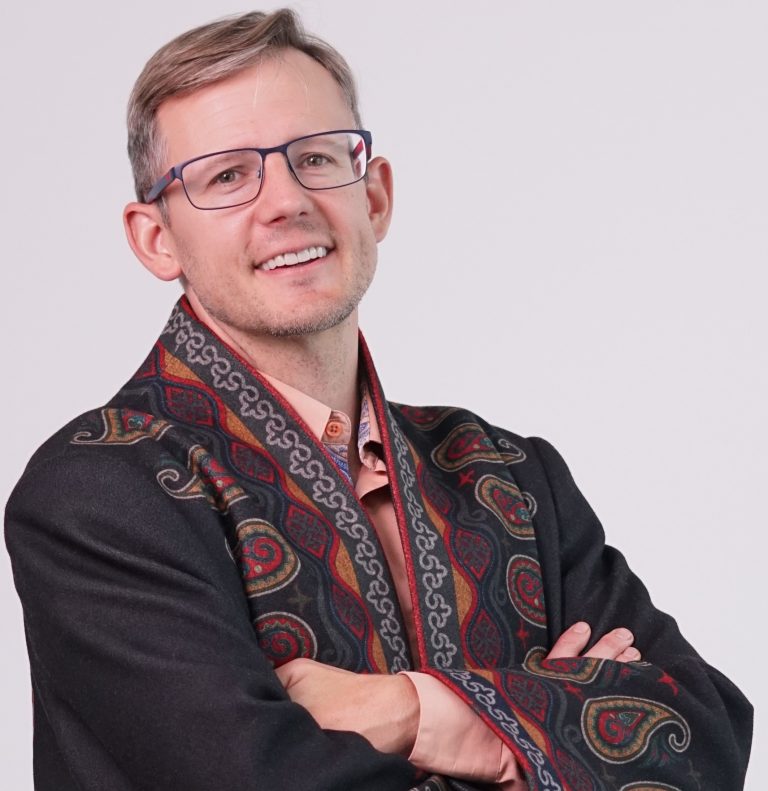
Research Interest
Imperialism in Comparative Context, Anti-Colonial Movements, East Central Europe, Urban History, History of Travel and Ethnography
Curtis Murphy received his Ph.D. from Georgetown University with a focus on East Central Europe in the eighteenth and nineteenth centuries, and he has worked at Nazarbayev University since
2017. His research interests include interfaith and multinational cooperation, urban and rural social history, identity, and nationalism.His first book, From Citizens to Subjects: City, State, and the Enlightenment in Poland, Ukraine and Belarus (https://www.upress.pitt.edu/books/9780822964629/) appeared in 2018 with the University of Pittsburgh press. This book examined the experience of urban residents in cities of the former Polish-Lithuanian Commonwealth from the eighteenth century through 1864. Rather than viewing urban citizens as backwards and shortsighted in the face of progress, From Citizens to Subjects argues that conflict between citizens and the state at the turn of the nineteenth century resulted from a clash of two rival, incompatible and mutually-incomprehensible political visions, one of which—that of the enlightened center—ultimately triumphed and has informed subsequent interpretations of the period ever since.
Prof. Murphy has continued to publish articles on urban history and Christian-Jewish interaction in the Polish-Lithuanian Commonwealth, including a recent case study of a blood-libel investigation in eighteenth-century Belarus. At the same time, Prof. Murphy has broadened his original research interests to include a focus on multinational cohabitation and colonization in Kazakhstan and Eurasia. He recently published an article on Polish ethnographers in the Kazakh steppe and the Caucasus, and he has another piece forthcoming on the complex political identity of the Polish-Ukrainian, Muslim adventurer Michał Czajkowski (known as Sadyk Pasha). Prof. Murphy is currently working on projects connected to Russian colonialism on the Kazakh steppe and the problem of Polish revolutionaries on Russia’s Eurasian
FELLOWSHIPS AND AWARDS
- 2021 – American Councils Title VIII Research Scholar Fellowship
- 2015 – Research Stipend, Polish History Museum
- 2012 – John Ruedy General Education Teaching Award, Georgetown University
- 2011 – Baltic Language Summer Institute Scholarship, University of Wisconsin, Madison
- 2008 – Fulbright-Hays Doctoral Dissertation Research Abroad Fellowship, U.S. Department of Education
Books
From Citizens to Subjects: City, State and the Enlightenment in Poland, Ukraine, and Belarus (University of Pittsburgh Press, 2018)
Articles
“Princeps inter pares: Karol Stanisław Radziwiłł’s Electoral Machine and the Polish-Lithuanian Parliament in the Late Eighteenth Century.” Societies, Estates, and Parliaments in the Eighteenth Century: Practices of Representation (under review with Routledge)
“The Last Sarmatian: Michał Czajkowski’s Civic Ukrainian Identity.” Harvard Ukrainian Studies (forthcoming, 2023)
“The French Revolution and the Cities,” in The Cambridge Urban History of Europe, vol 2: Middle Ages and Early Modern, ed. Patrick Lantschner and Maarten Prak (forthcoming, 2023)
“Involuntary Orientalists: Polish Exiles and Adventurers as Observers of the Kazakh Steppe and the Caucasus,” in The World Beyond the West: Perspectives from Eastern Europe, ed. Mariusz Kowalczyk and Magdelena Kozlowska. (Berghahn Books, 2022)
“The Lord’s Justice: Blood Libel, Legalism, and Neighborly Negotiation in an Eighteenth-Century Private Town.” Jewish History 34, no. 5 (Fall, 2021).
“Foul-Weather Friends: Reinterpreting Jewish-Christian Urban Interaction in the Final Decades of the Polish-Lithuanian Commonwealth.” Polin: Studies in Polish Jewry 33 (2021).
“A Free and Feudal Government: Civic Republican Mentalities in the Cities of the Polish-Lithuanian Commonwealth.” The Polish-Lithuanian Commonwealth: History, Memory, Legacy, ed. Andrzej Chwalba and Krzysztof Zamorski (Routledge, 2020).
“Burghers vs. Bureaucrats: Enlightened Centralism, the Royal Towns, and the Case of the Propinacja Law in Poland-Lithuania, 1776-1793.” Slavic Review 71, no. 2 (Summer, 2012).
Review Essays
“Diversity and Coexistence in the Premodern Towns of East Central Europe.” Journal of Urban History (2020).
Book Reviews
Larry Wolff, Disunion within the Union: The Uniate Church and the Partitions of Poland (2019). Canadian-American Slavic Studies (Winter, 2021).
Nils Hansson and Jonatan Wistrand, Explorations in Baltic Medical History, 1850-2015 (2019). Canadian Slavonic Papers (Winter, 2020).
Peter Paul Magocsi, With Their Backs to the Mountains: A History of Carpathian Rus’ and the Carpatho-Rusyns (2015). Slavic and East European Journal (Summer, 2017).
Theodore Weeks, Vilnius Between Nations, 1795-2000 (2015). Slavic and East European Journal (Spring, 2017).
1. History of Kazakhstan
2. European History I and II
3. Conflict of Civilizations: Central Europe from 1000-1890
4. Modernizing the Periphery: Central Europe from 1890 – present
5. Eurasian Enlightenment
6. European Nationalism
7. Empire, Nation and Identity in Nineteenth-Century Eurasia
8. Directed Readings and Undergraduate Capstone



